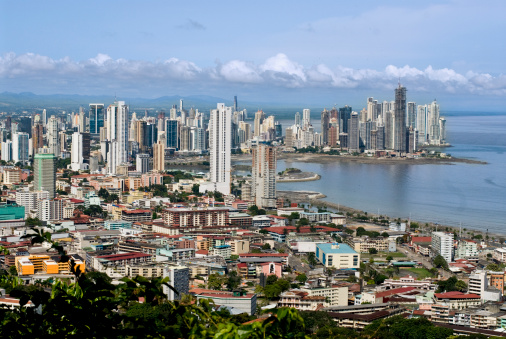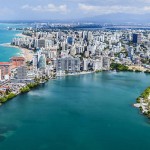Maximum Security with a Cook Islands Asset Protection Trust
The Cook Islands asset protection trust is the Fort Knox of asset protection. An offshore trust from the Cook Islands is the ultimate in personal privacy and protection – often imitated but never duplicated. If you want to build an impregnable fortress offshore, you want a Cook Island asset protection trust.
The Cook Islands asset protection trust is the best available because it works. Every time a well designed Cook Islands trust has been tested in court by a civil creditor, it has protected our clients assets.
Note that I said civil creditors. The Cook Island trust is not intended to keep out the US government. If you’re a US citizen, you must report your offshore trust and offshore bank account to the IRS. Also, you must usually pay taxes on the gains within the trust.
Another reason a Cook Islands trust is the best available is because it’s flexible. You, the settlor, can manage the assets of the trust until a “bad thing” happens. If you come under attack by a creditor, you will turn over this responsibility to your offshore trustee.
When you come under duress, your licensed, bonded and insured trustee in the Cook Islands will step in and assume the management of your trust. They will captain the ship until you have dispatched your foe in the courts. If you need cash, the trustee will send it to you. If you want to buy a property overseas or invest in gold, your trustee can facilitate that on your behalf.
This is why the Cook Islands asset protection trust is the best of both worlds – you have 100% control of the assets unless and until you come under attack. If that occurs, a trusted and professional trustee steps in to your shoes and manages the trust per your prior instructions.
Note that this max protect offshore trust is meant to secure your assets from future civil creditors. If someone sues you after you funded your offshore trust, there is nothing he or she can do to reach your assets. If they sue you before you fund your trust, they can probably knock down your walls and breach the castle.
The Cook Islands is located due south, near Australia and New Zealand in the same time zone as Hawaii. The trustees and other professionals, with whom we’ve worked for over 10 years, are lawyers, CPAs and other licensed professionals from New Zealand.
With the Cook Islands, you’ll be working with top veteran attorneys from reputable jurisdictions. These are high level professionals and not the typical paper pushers you meet in the banana republics around the Caribbean.
Another benefit of the Cook Islands is that, should a creditor bring suit against the trust, they’ll need to do it in New Zealand. Legal cases are heard in New Zealand courts who apply Cook Islands law. You know that the process will be fair and that the laws will be administered properly… another feature often missing in less reputable Caribbean jurisdictions.
The next feature of the Cook Island offshore asset protection trust is “portability.” You can move the trust and its assets out of the Cook Islands at any time. That’s right, a Cook Islands Trust can be moved to another jurisdiction if you come under attack.
Let’s say a creditor has won their case in US and is attempting to enforce their judgement in Cook Island. Assuming the statute of limitations hasn’t run out, and it appears the creditor is making headway, you can pick up the assets of the trust and move them to another country such as Belize or Cayman Islands. The creditor might spend many thousands of dollars bringing an action in Cook Islands to find an empty treasure trove when he finally makes it past the gates.
Remember, when the statute of limitations clock runs out, New Zealand will refuse to hear any cases against your Cook Island trust.
Beating that statute of limitations is a very difficult thing to do for a civil creditor, especially one from the United States. Thus, it’s rare for a creditor to even get the right to have their case against a Cook Islands offshore asset protection trust heard.
This is because the Cooks Islands statute of limitations is one year from the date the trust is funded or two years from the cause of action (the date the harm occurred).
Because US litigation usually takes years, by the time the case is complete in the US, and the creditor has a civil judgment they want to enforce in Cook Islands, the clock has run out. That is to say, by the time the creditor gets a judgement in the US, they will be barred by the statute of limitations in the Cook Islands from collecting on that judgement.
Of course, we hope you never need to use your Cook Island asset protection trust. Maybe trouble never finds you and your structure sits unused as an insurance policy. Maybe creditors decide not to sue because your assets are out of their reach. Often the case is never brought because the US lawyer refuses to take the case on contingency because the probability of collection is low.
If you do need your asset protection trust, and it’s within the 1 or 2 year window, the Cook Island law is still there to support you. The only way the creditor can enforce a judgement against you in Cook Islands is to prove beyond a reasonable doubt (a very high legal standard) that the sole reason you setup the offshore trust was to transfer assets away from that particular creditor.
Of course, there are many reasons to set up an offshore asset protection trust. For example, to facilitate your international investments, international estate planning, general protection (not related to one particular creditor), etc. Each of these reasons should be documented during the formation phase to support your use of a Cook Island trust.
So long as the trust is used to protect against future civil creditors, and not the US government, your offshore structure will provide an impenetrable barrier through which no creditor may pass.
I hope you have found this post on offshore asset protection trusts in the Cook Islands helpful. Please contact me at info@premieroffshore.com or call (619) 483-1708 for a confidential consultation.












Leave a Reply
Want to join the discussion?Feel free to contribute!